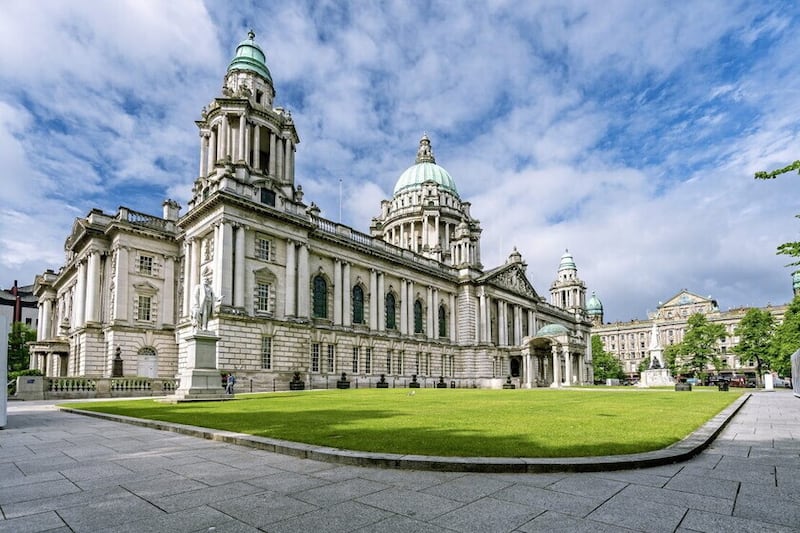Less than a decade ago, the DUP emerged from the local government election by far the biggest party in the north's council chambers with 130 seats to Sinn Féin's 105. In many ways, that election was Peter Robinson's last hurrah. Within 18 months he had stepped down as DUP leader and was succeeded by Arlene Foster, which is arguably the point when the rot set in. The collapse in the DUP vote some predicted in the wake of Brexit and the RHI scandal has never quite materialised and is mostly wishful thinking. Yet undeniably, support for the party that was top dog in the post-St Andrews era has been sliding steadily. There's every likelihood that in a repeat of last May's assembly election, the DUP will be superseded for the first time this weekend by Sinn Féin as the largest party in local government. For an illustration of a slowly waning DUP look to Lisburn & Castlereagh, much of it part of Sir Jeffrey Donaldson's constituency, where the party's Scott Carson, currently serving as mayor, lost his seat in Lisburn North. In Derry & Strabane Council's Waterside DEA, the party's vote slipped by 6 percentage points, most migrating to its main unionist rival. It's not a disaster but neither is it a ringing endorsement of the present Stormont boycott.
Sir Jeffrey will inevitably blame a shredding of the unionist vote but this is to incorrectly suggest unionism was at some stage monolithic. The reality is that the pool in which all capital-U unionist parties are fishing is getting smaller – hence the DUP and UUP vote is shrinking commensurately, while the TUV's fluctuates from poll-to-poll.
Ironically, most unionists will acknowledge this, alongside the need to reach beyond unionism's traditional base, yet putting such a strategy into practice is always met with resistance. Even Doug Beattie in the traditionally more liberal UUP, has difficulty keeping a sizeable reactionary element on board.
On the eve of Thursday's election, Sir Jeffrey Donaldson told us that this poll was about strengthening the DUP's hand to enable the party to "finish the job of restoring Northern Ireland’s place in the United Kingdom". The message was of course about maximising votes but in many ways it was a deliberately ambiguous one. The DUP leader has been quizzed on what exactly his party requires but always bats the ball back into the British government's court, saying commitments made in 2020's New Decade New Approach deal need to be honoured. It's a situation that typifies where the DUP finds itself presently. It remains the dominant party in unionism and there's little to suggest it will relinquish that position any time soon but there's a quiet realisation that something needs to change.
Only when all the votes are counted can we assess where this election leaves the DUP and how it will influence its next step. There is a growing expectation that the assembly will return in the autumn – a message sent categorically by voters for non-unionist parties. It's less clear what message the unionist electorate are sending. We can assume Sir Jeffrey and his leadership team have already made up their mind and will use this result expediently as an endorsement of whatever they choose to do. If that sounds confusing or perhaps contradictory, that's because the DUP currently is confused and knows that the more it seeks to frustrate the restoration of Stormont, the more questions its supporters will ask.






